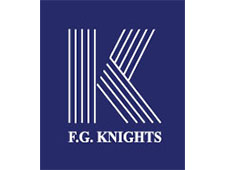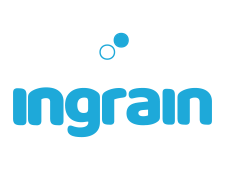NESTLÉ: A Healthier, Tastier, More Sustainable Future Is Brewing
“We unlock the power of food to enhance quality of life for everyone, today and for generations to come.” So begins the world’s largest food and beverage company, Nestlé, whose Head Office in South Africa represents the hub of an ESAR operation encompassing 23 country markets split into six clusters, where tackling hidden hunger and transforming lives and livelihoods remain pressing concerns.
Present in 191 countries around the world and with more than 2000 brands ranging from global icons like Nescafé or Nespresso to local favourites such as Ricoffy to its name, Nestlé is steadfast in its drive to enhance quality of life and contribute to a healthier future. “We want to help shape a better and healthier world,” the company abridges. “We also want to inspire people to live healthier lives. This is how we contribute to society while ensuring the long-term success of our company.”
This is a commitment which dates right back to its foundations more than 150 years ago, when Swiss pharmacist Henri Nestlé created an infant cereal – ‘Farine Lactée’ – which saved the life of a child. The first Nestlé products then arrived in South Africa during the 1870s, with the company’s presence in the country formally entrenched in July 1916.
“We constantly aim to push the boundaries of what is possible with food, beverage and nutritional health products to promote better health, greater accessibility and affordability, effortless preparation, protection of our natural resources and enjoyment,” Nestlé states. “We focus our energy and resources where unlocking the power of food can make the greatest difference and apply our expertise in nutrition, health and wellness to help people, families and pets live happier, healthier lives.”
TACKLING MICRONUTRIENT DEFICIENCY
Access to affordable nutrition is a global challenge, with an estimated three billion people unable to secure adequate food. Micronutrients account for approximately 7% of the global disease burden, and play a key role in the growth and development of the whole family. A lack of micronutrients, otherwise known as hidden hunger, can lead to poor growth, sub-optimal brain development, and a heightened risk of contracting infectious diseases.
“That is why,” Nestlé responds, “we’re working to make high-quality food accessible and available and to address micronutrient malnutrition for the people who need it most.” The launch of NESTLÉ EVERYDAY is targeted specifically at helping to tackle micronutrient deficiencies in South Africa, in the form of an affordable fortified medium fat dairy powder drink which not only presents a viable solution to hidden hunger, but also builds immunity to help fight against micronutrient deficiencies.
In South Africa, studies have shown that adults are prone to zinc deficiency and that one in five children are stunted; addressing hidden hunger is thus a crucial step in ensuring the health and wellness of the whole family. “The introduction of NESTLÉ EVERYDAY into our stable of brands for the South African family is a deliberate pivot from the business in East and Southern Africa,” comments Takudzwa Mupfurutsa, Business Executive Officer: Dairy at Nestlé ESAR, of the flagship product enhanced with locally sourced ingredients containing Calcium, Iron, Vitamins, and Zinc.
“We are driven to contribute to solving hidden hunger by bringing products that are affordable and accessible while boosting immunity and health for the whole family. NESTLÉ EVERYDAY is testament to that commitment, formulated through innovative and collaborative research with labs and communities.
“The COVID–19 outbreak emphasised the importance of strong immunity to help our bodies fight against infectious diseases, while the economic impact of the pandemic for many families in emerging economies further hamstrung access to nutritious food to build immunity,” Mupfurutsa adds. “Therefore, we locally manufactured NESTLÉ EVERYDAY in South Africa, and we were intent on delivering an affordable product that suits all budgets, and is easily available from both supermarket chains and spaza shops. We are proud that the final result also delivers exceptionally on taste, ensuring a delicious experience for the whole family.”
TRANSFORMATIVE THINKING
One of the most widely recycled materials in the world, aluminium is infinitely recyclable, saving enormous quantities of energy in its production and making it well-suited to the circular economy. Nestlé is continuing to drive science, technology and innovation to help meet its 2025 ambition to make 100% of its packaging recyclable or reusable in a first for the Starbucks® At Home by Nespresso® range, with the announcement of coffee capsules that are to be made using 80% recycled aluminium.
“With every material we use to produce the capsules, we are committed to ensuring that none of our packaging ends up in landfill or as litter and aim to minimise the impact of our packaging on the environment,” explains Nicole Roos, Business Executive Officer for Beverages at Nestlé East and Southern Africa Region. “This includes advocating for adequate recycling infrastructure for coffee capsules regardless of the material used. In addition, aluminium can be re-melted and reused infinitely, giving it a second life.”
The range is available across stores including Checkers, Pick ‘n Pay, Spar and Makro as well as convenient online platforms such as Takealot, Checkers Sixty60 and Pick ‘n Pay Online. Not only is this new initiative infinitely better for the environment, aluminium is also one of the best materials to retain freshness and protect the aromas of the coffee, providing an exceptional barrier to oxygen, light and humidity.
“By using 80% recycled aluminium, we demonstrate the recyclability of aluminium and want to encourage our consumers to recycle their aluminium capsules, helping in turn to decrease the carbon footprint of a cup of coffee. This is a key aspect of the Nestlé ESAR RE initiative that focuses on three key pillars RETHINK, REDUCE and REPURPOSE to tackle sustainability issues”, Roos adds.
Nestlé is also wholly committed to the push to grow agribusinesses and encourage agripreneurship amongst young people in east and southern Africa, instituting the Nestlé Needs Youth (NNY) Agri Competition in partnership with the Branson Centre of Entrepreneurship South Africa. Capacity development, mentorship, and coaching support are all key to addressing the widespread skills gap in agriculture in Africa, accelerating the evolution of the sector and affording better efficiencies, improved processes, and cutting-edge technologies
“Many of Africa’s economies have an agrarian foundation from community all the way to national level and through this competition, we are looking to support and encourage young people to participate in this economic sector,” explains Nestlé East and Southern African Region Head of Learning and Development, Desiree Zikalala.
“There are several transformative prospects in agriculture that desperately need young people to step in and lead, and we believe that the IGNITE Programme placements that are up for grabs will help facilitate those opportunities. We intend for the NNY Agri Competition to open further dialogue on young people in agriculture, and help build transformative networks that support agripreneurship, employment and employability.”


